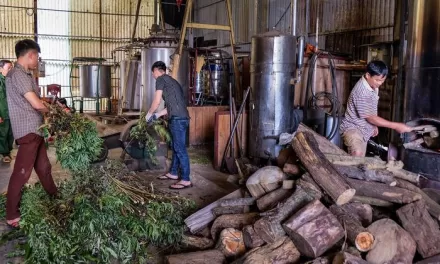Two communities from India bag this year’s prestigious UNDP Equator Prize, for their exceptional achievement in showcasing local, innovative, nature-based solutions for tackling biodiversity loss and climate change and achieving their local development goals.
The two winning organizations from India out of the ten winners globally are— Aadhimalai Pazhangudiyinar Producer Company Limited and Snehakunja Trust. They will each receive a prize of US$10,000 and the opportunity to join a series of special virtual events associated with the UN General Assembly, the Nature for Life Hub and the UN Food Systems Summit later this year. They will join a network of 255 communities from over 80 countries that have received the Equator Prize since its inception in 2002.
The virtual award ceremony is scheduled for Monday, 4 October 2021.
“We need a profound transformation in our economic and development models that will drive forward the protection and restoration of our natural world,” said UNDP Administrator, Achim Steiner. “This year’s Equator Prize winners demonstrate that this transformation is already happening across the globe — their incredible nature-based solutions provide a blueprint to solve our planetary emergency. We are grateful to the Government of Norway for its generous support to the 2021 Equator Prize.”
Looking ahead to the post-2020 Global Biodiversity Framework, the winners exemplify what actions can be taken now to protect, restore and sustainably manage crucial ecosystems and biodiversity for the future of people and planet.
“I am excited that the two Indigenous and local communities from India out of ten winners have bagged the prestigious Equator award for their knowledge and practices of nature-based solutions. It is important to recognize the vital stewards who help in restoring our sustainable food systems, climate and nature, which should be at the heart of local development, especially more so in the context of COVID-19,” stated Shoko Noda, UNDP Resident Representative in India.
The winners were selected from a pool of over 600 nominations from 126 countries by an independent Technical Advisory Committee of internationally renowned experts. The selection was based on community-based approaches that provide a blueprint for replication and scaling solutions to address our biodiversity crisis.
Partners of the Equator Initiative include the governments of Norway, Germany, and Sweden, as well as Conservation International, the Convention on Biological Diversity, EcoAgriculture Partners, Estee Lauder Companies, Fordham University, the International Union for Conservation of Nature, One Earth, The Nature Conservancy, PCI Media Impact, Tribal Link, Rainforest Foundation Norway, Rare, UNEP, UNDP, UN Foundation, USAID, WWF, and the Wildlife Conservation Society.
The Equator Prize has been supported by former Heads of State Gro Harlem Brundtland and Oscar Arias, Nobel Prize winners Al Gore and Elinor Ostrom, thought leaders Jane Goodall and Jeffrey Sachs, Indigenous rights leader Vicky Tauli-Corpuz, philanthropists Richard Branson and Ted Turner, and celebrities Edward Norton, Alec Baldwin, Gisele Bündchen, and many more.
Meet the Equator Prize 2021 winners from India:
Aadhimalai Pazhangudiyinar Producer Company Limited – India
This 1,700-member cooperative, managed and run entirely by Indigenous people from the Nilgiri Biosphere Reserve in Southern India, has improved livelihoods across 147 villages by processing and marketing a diverse range of forest produce and crops. Through local value addition, members earn premium prices on a wide range of products including those collected sustainably from the Reserve such as honey, soap nuts and berries, phoenix leaves and others, as well as those cultivated organically such as coffee, pepper, silk cotton, cereals, spices, fruits, and many others. Shareholders regularly monitor harvesting and agricultural practices to ensure product quality and prevent overuse of resources. The company has a gender-balanced membership and a women majority among its employees, and provides hands-on training for shareholders and social enterprises across the region.
Snehakunja Trust – India
Snehakunja Trust has protected sensitive wetland and coastal ecosystems in the Western Ghats and the Karnataka coast for 45 years. With a focus on community-based restoration and conservation, this organization provides essential solutions to the climate crisis. It has supported hundreds of self-help groups and village forest committees to sustainably manage resources based on traditional knowledge, implement natural farming techniques, use clean energy, promote entrepreneurship, and provide community health services. The restoration and protection of freshwater swamps and evergreen forests safeguards endangered species, keeps significant carbon sinks intact, and maintains critical aquifers for Indigenous communities. Restoring 375 hectares of mangroves, Snehakunja Trust is currently piloting the first blue carbon project in India.












